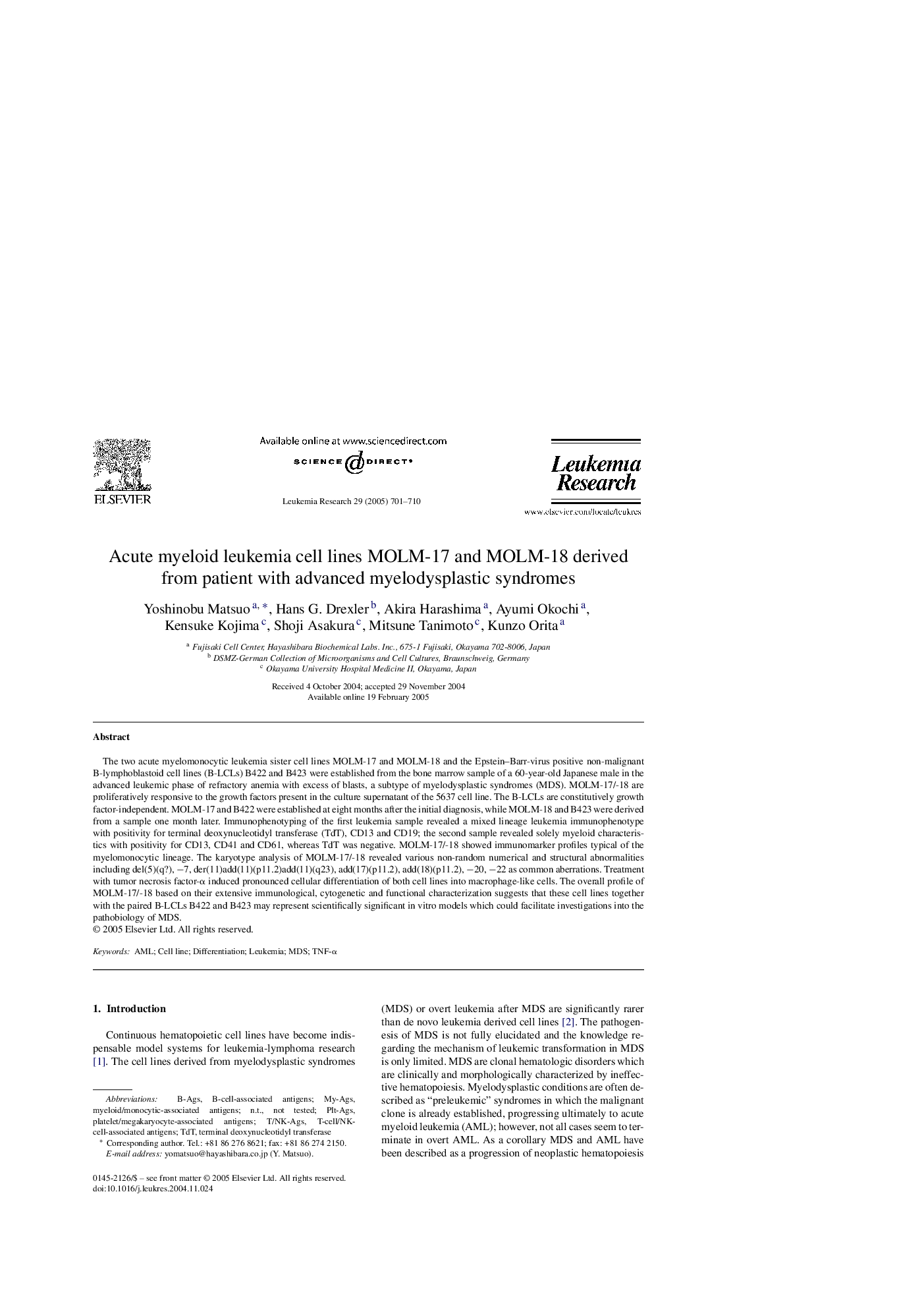| Article ID | Journal | Published Year | Pages | File Type |
|---|---|---|---|---|
| 10909749 | Leukemia Research | 2005 | 10 Pages |
Abstract
The two acute myelomonocytic leukemia sister cell lines MOLM-17 and MOLM-18 and the Epstein-Barr-virus positive non-malignant B-lymphoblastoid cell lines (B-LCLs) B422 and B423 were established from the bone marrow sample of a 60-year-old Japanese male in the advanced leukemic phase of refractory anemia with excess of blasts, a subtype of myelodysplastic syndromes (MDS). MOLM-17/-18 are proliferatively responsive to the growth factors present in the culture supernatant of the 5637 cell line. The B-LCLs are constitutively growth factor-independent. MOLM-17 and B422 were established at eight months after the initial diagnosis, while MOLM-18 and B423 were derived from a sample one month later. Immunophenotyping of the first leukemia sample revealed a mixed lineage leukemia immunophenotype with positivity for terminal deoxynucleotidyl transferase (TdT), CD13 and CD19; the second sample revealed solely myeloid characteristics with positivity for CD13, CD41 and CD61, whereas TdT was negative. MOLM-17/-18 showed immunomarker profiles typical of the myelomonocytic lineage. The karyotype analysis of MOLM-17/-18 revealed various non-random numerical and structural abnormalities including del(5)(q?), â7, der(11)add(11)(p11.2)add(11)(q23), add(17)(p11.2), add(18)(p11.2), â20, â22 as common aberrations. Treatment with tumor necrosis factor-α induced pronounced cellular differentiation of both cell lines into macrophage-like cells. The overall profile of MOLM-17/-18 based on their extensive immunological, cytogenetic and functional characterization suggests that these cell lines together with the paired B-LCLs B422 and B423 may represent scientifically significant in vitro models which could facilitate investigations into the pathobiology of MDS.
Keywords
Related Topics
Life Sciences
Biochemistry, Genetics and Molecular Biology
Cancer Research
Authors
Yoshinobu Matsuo, Hans G. Drexler, Akira Harashima, Ayumi Okochi, Kensuke Kojima, Shoji Asakura, Mitsune Tanimoto, Kunzo Orita,
